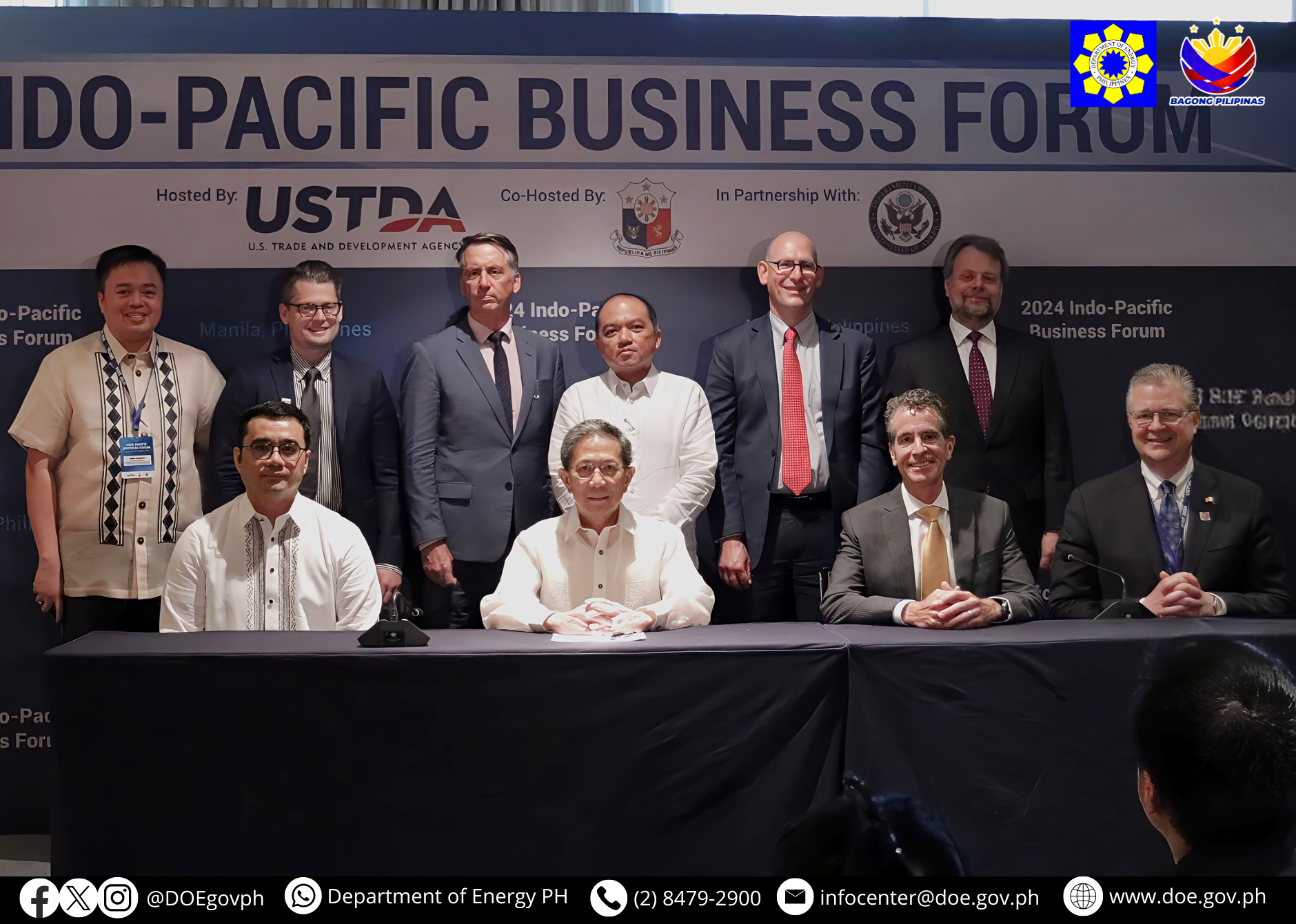On the sidelines of the Indo-Pacific Business Forum held today, the Department of Energy sealed two Memoranda of Understanding (MOUs) aimed at fostering collaboration to enhance capacity building in the energy sector and propel the country’s energy goals forward.
Under the first MOU, the DOE and the Philippine-American Educational Foundation (PAEF), also known as the Fulbright Commission in the Philippines, will work together to establish a framework for creating scholarships and human resource development programs for the Philippine energy sector. This collaboration will also involve engaging experts from the United States to provide professional consultations, lectures, training, and research to the DOE, as well as to universities, and institutions in the Philippines endorsed or identified by the Department.
The first MOU also offers opportunities for pursuing visiting fellowship awards for advanced research, training programs, and other educational exchanges. These include non-degree studies, research projects, workshops, seminars, and various training programs tailored for Filipinos in universities and other institutions in the United States.
Meanwhile, a second MOU was signed between the DOE and the United States Agency for International Development (USAID) to build upon the existing partnership between the United States and the Philippines, rooted in a series of substantive bilateral meetings and dialogues over the past years.
Under this MOU, USAID, through its Energy Secure Philippines (ESP) activity and other supporting initiatives, will endeavor to provide development assistance to the DOE to achieve shared energy goals, including improving energy utility performance, increasing the deployment of advanced energy sources and systems, enhancing competition, ensuring resilient energy infrastructure, and securing supply reliability.
Additionally, the USAID will provide technical and ancillary support to the DOE in leading the country's clean energy transition program, implementing the Civil Nuclear Cooperation Agreement, and developing a Smart and Green Grid Plan. These initiatives are aligned with the country’s international commitments to address the climate crisis and fulfill its Nationally Determined Contributions under the United Nations Framework Convention on Climate Change.
The DOE is committed to a sustainable energy program and has laid out a comprehensive roadmap to increase the country's renewable energy capacity. The goal is to achieve a minimum 35 percent share of renewable energy in the power generation mix by 2030 and 50 percent by 2040, with offshore wind energy playing a significant role in this endeavor.
In addition to renewables, the government is actively exploring low-carbon alternatives, such as nuclear energy, as well as exploring the feasibility of integrating energy storage systems and other emerging technologies.
Energy Secretary Raphael P.M. Lotilla said that the collaboration with the PAEF will give the country “an opportunity to have advanced training for the clean energy sector in developing the human resources that are needed, including the opportunities for civil nuclear cooperation.”
For his part, Assistant Secretary of State for East Asian and Pacific Affairs Daniel Kritenbrink emphasized that the MOU signing is a demonstration of the United States government’s commitment to provide assistance in developing highly skilled professionals, institutionalize robust policies, and foster lasting commercial partnerships to ensure the sustainability of a safe and secure civil nuclear industry.
Secretary Lotilla signed both MOUs on behalf of the DOE while Chairperson John Groch and Mission Director Ryan Washburn represented the PAEF and USAID, respectively. US Assistant Secretary Kritenbrink witnessed the signing of both MOUs. ###

